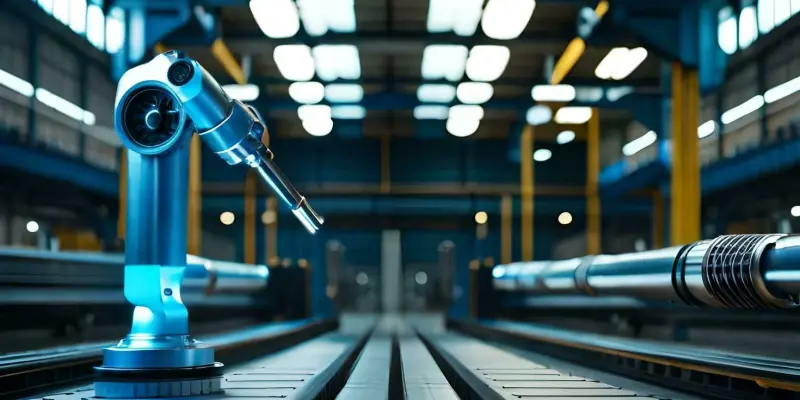Flexxbotics has recently unveiled a significant upgrade to its proprietary technology, FlexxCORE, which promises to revolutionize smart factory automation. With its advanced capabilities for multi-machine robotic automation, FlexxCORE is set to transform the manufacturing landscape by enhancing robotic machine tending, quality control, and production lines. These enhancements are poised to help manufacturers standardize robotic production throughout smart factories, increasing plant capacity, improving quality, and boosting EBITDA margins.
Advanced Features of FlexxCORE
Enhanced robot awareness is one of the standout features, allowing robots to interpret each machine’s tasks, processing routines, and operational statuses. This level of understanding enables robots to perform more efficiently and handle complex tasks with greater precision. Additionally, parallelized data pipelines play a crucial role in this upgrade. Asynchronous, parallel pipelines enable efficient real-time coordination between robots and multiple machines, ensuring seamless operations and reducing downtime.
Moreover, greater data granularity expands the data model for capturing robotic operational contexts, facilitating pattern recognition and machine learning. This means that robots can adapt to new tasks and environments more quickly, leading to increased productivity and reduced operational costs. The combination of these features ensures that FlexxCORE offers a robust and flexible solution for modern smart factories, addressing the growing demand for advanced automation technologies.
The expanded RESTful API in FlexxCORE allows for dynamic definition within the robotic production environment. According to Tyler Modelski, Co-founder and CTO of Flexxbotics, this advancement ensures that robots not only understand each machine’s capabilities and status but can also direct machines to execute tasks and resolve issues autonomously.
Low-Code Environment and Standardization
FlexxCORE’s low-code environment introduces a new level of simplicity and efficiency in automation integration. This environment supports the creation and execution of ‘Transformers’ – robust translation driver connectors that facilitate bi-directional communication between robots and factory equipment. The low-code approach allows for rapid development and deployment of these connectors, significantly speeding up the process by 22 times compared to traditional automation integration methods. This increased speed and efficiency are particularly valuable in smart factories, where time is of the essence. Furthermore, the low-code environment ensures compatibility with over 1,000 different types of machinery and inspection equipment. This broad compatibility reduces the need for custom programming and simplifies the integration process, making it easier for manufacturers to scale their operations. The standardized approach of FlexxCORE means that manufacturers can deploy advanced robotic systems across multiple facilities with minimal modifications, reducing maintenance difficulty and costs. Historically, scaling advanced robotic machine tending across smart factories has been challenging due to custom programming needs and the complexity of interfaces, often resulting in failed attempts. The new FlexxCORE technology addresses these issues by providing standardized process integration, reducing maintenance difficulty, and preparing factories for future AI workflow introductions.
Transforming Smart Factories
Flexxbotics has recently launched a major upgrade to its proprietary technology, FlexxCORE, which is set to revolutionize smart factory automation. This advanced system significantly improves multi-machine robotic automation capabilities, positioning FlexxCORE as a game-changer in the manufacturing sector. With enhanced robotic machine tending, quality control, and streamlined production lines, the latest release of FlexxCORE allows both industrial and collaborative robots to manage multiple machines and operations involving diverse part SKUs. These robust advancements aim to help manufacturers standardize robotic production across smart factories, ultimately increasing plant capacity and improving overall quality. Another notable benefit is the potential boost to EBITDA margins, solidifying manufacturers’ financial health. Flexxbotics’ innovative solution promises a new era of efficiency and productivity in automated manufacturing environments, making it a crucial tool for modern smart factories aiming for excellence and operational success.

